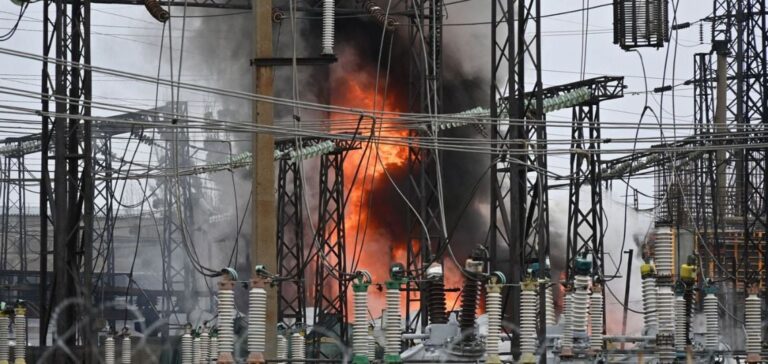Ukraine’s energy infrastructure is suffering increasing damage as a result of Russia’s targeted strikes.
On August 26, 2024, Russian missiles and drones struck several strategic regions, including Lviv, Jytomyr and Dnipropetrovsk, destabilizing the national power grid.
These attacks, among the most violent in weeks, immediately forced the national operator, Ukrenergo, to initiate emergency power cuts to prevent the system from collapsing. The power cuts had a direct impact on critical infrastructure, including rail networks, disrupting links across the country.
The impact on critical sectors shows Ukraine’s vulnerability to these repeated attacks, and underlines the urgent need for an appropriate response.
Strategic effects of attacks on the energy sector
Russian strikes on energy infrastructure are not only intended to cause temporary interruptions, but also to permanently weaken Ukraine’s ability to maintain its economic and industrial operations.
By attacking energy facilities, Moscow is jeopardizing the continuity of vital services, thereby increasing the pressure on the Ukrainian government.
The Russian Defense Ministry justified the strikes as a necessary action to paralyze Ukrainian industrial capabilities.
The Ukrainian Energy Minister, Guerman Galushchenko, denounced this strategy of intimidation, pointing out that these systematic attacks compromise not only energy supplies but also the safety of the population.
The repetition of these strikes is exacerbating tensions on the power grid, which is becoming increasingly fragile in the face of repeated assaults.
Strengthening international coordination in response to the attacks
Against this backdrop, Ukraine is stepping up its calls for greater international cooperation.
President Volodymyr Zelensky insists on the need for better coordination with neighboring countries to improve the effectiveness of air defenses and protect critical infrastructures.
This strategy aims to strengthen the country’s energy resilience in the face of persistent threats.
Access to advanced weaponry remains a key issue, with Kiev continuing to press its partners to acquire more sophisticated defense technologies.
However, these requests meet with reluctance, not least because of the risks of escalation that such deliveries could entail.
Recent attacks underline the importance of Ukraine diversifying its energy sources and strengthening its infrastructure to better withstand future aggression.
International support will be crucial to help the country navigate through these challenges while maintaining the continuity of its vital services.






















